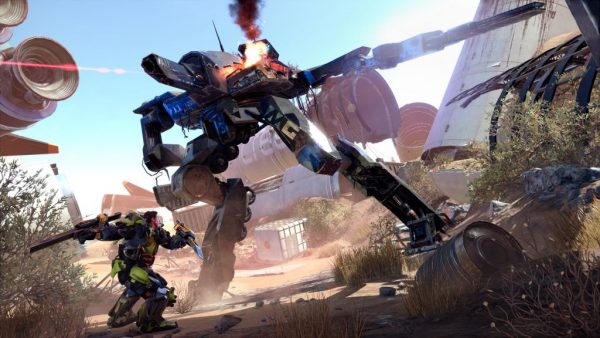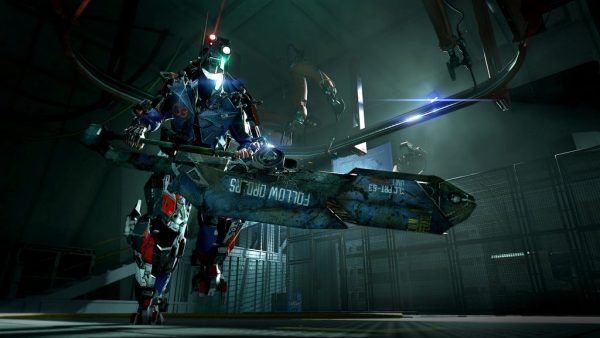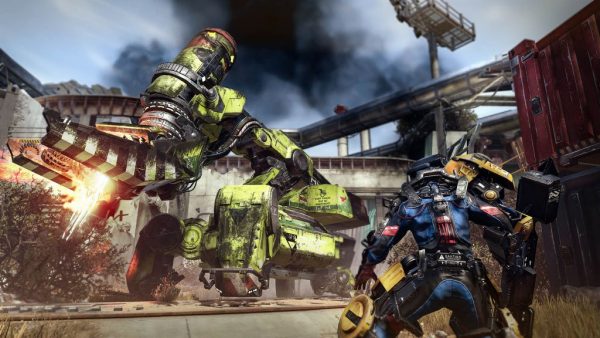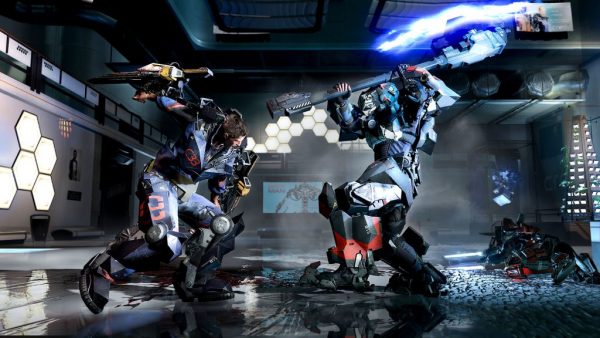Also On: PS4, Xbox One
Publisher: Focus Home Interactive
Developer: Deck13
Medium: Digital/Disc
Players: 1
Online: No
ESRB: M
I want to start this review off by addressing the elephant in the room. The Surge is Deck13?s new hardcore action RPG. If that descriptor seems familiar to you, then there is a good chance you have consumed a fair amount of Estus in the past couple of years. The similarities between The Surge and From Software?s Dark Souls titles will be apparent throughout this game, and I will discuss them, but not right now. I will be writing this review of The Surge as a title that stands alone, similarities aside. My reason for that is that this game fits a completely different bill and has the potential to pull an audience wholly different than that of the Souls games. This review is going to focus on the strong and weak points of The Surge as it stands, then at the end I will go into similarities and differences between this and Dark Souls. With all that being said, let?s jump in.
The Surge opens strong and shocking. You are immediately thrust into a world that is both foreign and familiar at the same time. You will notice common Sci-Fi elements at play here between the robots, cybernetic enhancements, and cyborg enemies. These all set the tone for everything that comes after. As you progress you will find a unique, if sometimes dull campaign that has enough to keep you intrigued throughout its majority. The story throughout The Surge has to be sought out and found for the most part. Holograms, audio logs and cut scene content are there, but few and far between. A lot of the story relies on environmental cues and reading things that you discover. Enemies drop loot that tells you more about who they are and why they are there. This also comes in handy for combat, as certain items will display weaknesses when taken off an enemy, which clues you in as to what that particular type of opponent is weak against.
This is by far my favorite mechanic at play in The Surge when coupled with its V.A.T.S like limb targeting system. The Surge doesn’t stop or slow combat to allow for targeting, but once you lock onto an opponent you can cycle through different parts of their body and target those specific parts. You will start to learn the weaknesses of enemies you encounter often and know exactly what to target. Targeting also allows you to knock certain parts off an opponent, so say you need a new right arm upgrade, target the right arm and knock off a part. This can now be used for you and shows you exactly what that enemy type is weak against. This brings a whole new level of depth to the combat for a game like this, and is something I can definitely see making an appearance in future titles that run in this vein.
Combat is where The Surge truly shines. Beyond the limb targeting system and the dismemberment, the combat just *feels* good. It is fluid and intuitive, while remaining pretty difficult. The Surge is by no means impossible, it’s difficulty is rarely even frustrating aside from the occasional ambush or boss fight, but it is definitely hard enough to keep you on your toes. You must find a fine balance of offense and defense, and be able to switch between the two at the drop of a hat. Playing too aggressive will get you killed, but playing too defensive will get you nowhere. Pulling enemies to fight one at a time makes most encounters a breeze, but if you get ganged up on you can really end up having a bad time.
The loot system follows the increasingly popular “die and lose everything” school of thought. You collect scrap as you progress through The Surge and you use that scrap to buy items, upgrades and increase the functionality of your cybernetic enhancements. If you die, all that scrap is left where you fell and you must go retrieve it. Another interesting inclusion here is that after you die, there is a countdown timer telling you how long you have to recover that scrap. Take too long, and that scrap is gone forever. This adds a sense of urgency to hunting your fallen loot, and adds an additional sense of frustration when you lose it.
Let’s get technical. The Surge runs almost flawlessly on PC. There were a few areas later on that showed a few dips, but overall this game is beautiful. The environment has rich, vibrant colors which show a stark contrast to the sometimes drab, machinelike backdrop. Colors around you can clue you in on things to come, not unlike an M. Night Shyamalan movie. You will begin to associate colors and sounds with certain events and opponents. Nuanced details like that really help The Surge stand out and make a name for itself. Coming after Deck13’s previous title, Lords of the Fallen, you can see a huge step forward for the company into a realm of their own and out of the shadows of better titles, which brings us to the section of the review where I am going to talk about Dark Souls.
The comparison to Dark Souls will be made forever onward with any game that brands itself as a hardcore RPG. From Software is not the first to do that genre, sure, but they are the most well-known. And, in my humble opinion, the best. They really have laid the groundwork for anyone else that tries their hand at this type of game and have set the bar extremely high. Lords of the Fallen was pegged as a ?Poor man?s Dark Souls?, and it was not wrong. The production value and experience was not there with that game, but this is a totally new game we are talking about now, and one that took great strides toward distancing itself and distinguishing itself from those games.
The biggest difference here is the setting. Instead of being dark fantasy or gothic, it is futuristic Sci-Fi. Instead of swords and shields you have machine parts that you fashion into weapons and a cybernetic enhancement rig instead of armor. These are not mere artistic differences, as they fundamentally change the way the game operates. This is not an attempted clone of Dark Souls, it is its own game that takes some core concepts like difficulty and the loss of gained experience upon death and builds its own world around it. My favorite parts of The Surge are when it DOESN?T feel like a Souls game.
The Surge?s biggest weakness comes from some pacing problems and a weak late game story. The beginning of The Surge is interesting and grabs your attention, but as you get closer to the end, those hooks start to lose their hold. It begins to feel convoluted just for the sake of being convoluted and feels like they lost direction a bit by the end, but it is never bad. The Surge feels like a learning experience and one that I hope Deck13 takes to heart and expands on with whatever their next title ends up being. I have enjoyed my time with this game and can honestly say that I am looking forward to whatever they release next.


